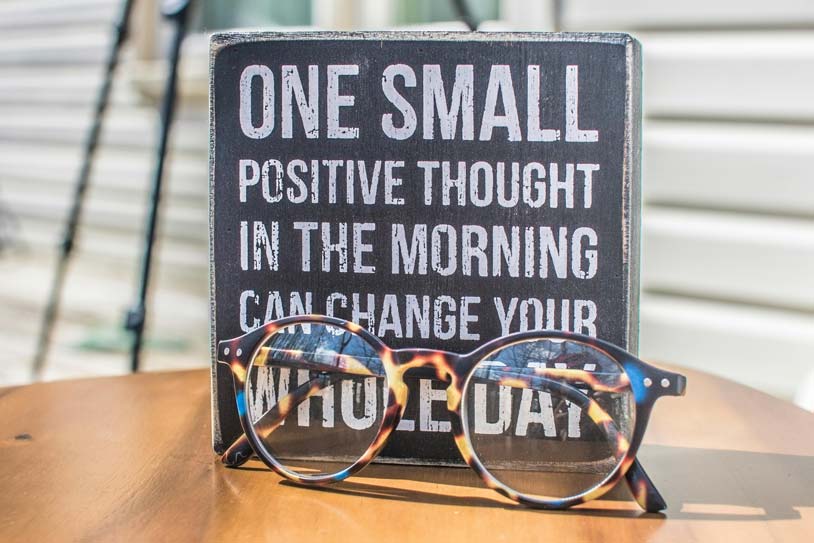
Life can be demanding. Between work, school, and personal responsibilities, it’s easy to feel overwhelmed. You push through deadlines, handle stress, and keep going even when you’re mentally exhausted. But eventually, you notice the signs — constant fatigue, trouble focusing, and increased irritability.
This is where a mental health day can help.
A mental health day is a planned break from your regular duties to focus on self-care and mental well-being. It’s not about avoiding work — it’s about giving your mind the rest it needs to stay healthy and productive. Taking a day to recharge can prevent burnout, improve focus, and boost overall mental health.
Ignoring mental exhaustion won’t make it disappear — it builds up over time, affecting your mood, performance, and even your physical health. Taking time for mental recovery is essential for long-term success and well-being.
How Mental Health Impacts Your Brain and Body
Stress isn’t just a mental burden — it affects your body too. Long-term stress increases levels of cortisol, a stress hormone that can harm your brain and body over time. Without proper rest, your brain’s ability to function at its best declines.
How Stress Affects the Brain and Body:
- Impaired Focus: Chronic stress makes it harder to concentrate and solve problems.
- Reduced Cognitive Function: Lack of rest reduces mental clarity and decision-making skills.
- Increased Anxiety and Irritability: Constant stress keeps your body in fight-or-flight mode, making you feel on edge.
- Weakened Immune System: High stress levels can make you more susceptible to illness.
- Poor Sleep: Elevated cortisol levels can disrupt your sleep cycle, leading to fatigue and irritability.
Rest allows your brain to reset and repair itself. When you take a mental health day, you give your body and mind the opportunity to recover, improving your mood and overall well-being.
Signs You Need a Mental Health Day
Many people wait until they’re completely drained before they take a break — but you don’t have to let it get that far. Your mind and body send signals when they need a rest. Learning to recognize these signs can help you avoid burnout before it becomes a bigger issue.
Common Signs You Need a Mental Health Day:
- Constant Fatigue
No matter how much you sleep, you wake up feeling exhausted and sluggish. Getting through the day feels like a struggle. - Irritability Over Small Things
Minor annoyances, like noise or interruptions, suddenly feel unbearable. Your patience runs thin, and you snap more easily. - Difficulty Concentrating
Simple tasks take longer than they should. Your mind feels foggy, and you find yourself rereading the same things repeatedly. - Feeling Emotionally Disconnected
You feel numb or detached from your emotions. Things that used to make you happy or excited no longer feel meaningful. - Heightened Anxiety
Your mind is always racing with worries. Even when nothing is wrong, you feel restless and uneasy. - Disrupted Sleep Patterns
You have trouble falling asleep or wake up during the night with racing thoughts. Even when you sleep, you don’t feel rested.
Recognizing these signs early can help you take action before stress leads to burnout.
How to Spend a Mental Health Day
Taking a mental health day isn’t about wasting time — it’s about recharging and giving your mind the care it needs. A well-planned mental health day should focus on rest, relaxation, and activities that help you reset.
1. Get Quality Sleep and Rest
- Allow yourself to sleep in if you’re tired.
- Take a nap if you feel the need.
- Create a calming environment:
- Dim the lights.
- Use essential oils or calming scents.
- Listen to soft music or white noise.
Nature has a calming effect on the mind and body. Fresh air, natural light, and movement help reduce stress and improve mood.
- Take a walk in a park.
- Sit by a lake or stream.
- Walk barefoot on grass or sand to feel grounded.
2. Disconnect from Work and Technology
Constant notifications and emails keep your mind in work mode. A true mental health day means stepping away from those distractions.
- Turn off your phone or put it on airplane mode.
- Avoid checking emails or work messages.
- Let coworkers know you’re unavailable for the day.
3. Engage in Light Exercise
Exercise helps reduce stress and release endorphins, but it’s important to avoid overexertion.
- Go for a light walk or jog.
- Try a gentle yoga session.
- Stretch or do a low-impact workout.
4. Connect with Supportive People
Spending time with people you trust can help you feel more supported and grounded.
- Meet a friend for coffee.
- Call a close friend or family member.
- Have a low-stress hangout, like watching a movie or taking a walk together.
5. Do Something You Enjoy
Give yourself permission to engage in activities that make you happy.
- Read a book or listen to an audiobook.
- Watch a comforting TV show or movie.
- Try a creative activity like drawing, painting, or writing.
- Cook or bake something you enjoy.
6. Avoid Social Media and Screens
Too much screen time can overstimulate your brain and increase stress.
- Set limits on social media scrolling.
- Avoid negative news or online debates.
- Choose mindful activities over screen time.
7. End the Day with Relaxation
Finish your mental health day on a calm note.
- Take a warm bath.
- Practice mindfulness or meditation.
- Write down your thoughts or feelings in a journal.
- Set a plan for easing back into your regular routine.

Why Taking a Mental Health Day Is Not Selfish
There’s often guilt attached to taking time off for mental health. People worry about appearing lazy or unreliable. But mental health is just as important as physical health.
You wouldn’t hesitate to take a day off if you were sick — mental exhaustion is no different. When you take care of your mental health, you improve your ability to handle stress, make decisions, and engage with others more effectively.
Benefits of Taking a Mental Health Day:
- Better Focus and Concentration
- Improved Mood and Emotional Balance
- Stronger Immune System
- Better Sleep Quality
- Increased Overall Productivity
How to Ask for a Mental Health Day
If you feel uncomfortable asking for a mental health day, remember that it’s your right to take care of your well-being. Here are some ways to approach the conversation:
- Be Honest but Professional: You don’t need to share every detail — simply saying you need a personal day is enough.
- Keep It Simple: “I’m not feeling my best and need to take a day to recharge.”
- Prepare in Advance: Try to arrange coverage for urgent tasks before taking the day off.
- Set Boundaries: Let your team know you won’t be checking emails or messages during your break.
Breaking the Stigma Around Mental Health Days
Taking a break to care for your mental health is not a weakness — it’s a strength. Prioritizing mental well-being leads to better performance, stronger relationships, and improved overall health.
When mental health care becomes normalized in the workplace and at home, everyone benefits. Encouraging mental health days helps create a supportive environment where people feel valued and understood.
Take Control of Your Mental Health
If you’re feeling overwhelmed, stressed, or burned out, don’t wait until it gets worse. Take a mental health day to reset, recharge, and restore balance. Your mind and body will thank you — and you’ll return with renewed focus, energy, and motivation.
Prioritize your mental health — because you deserve to feel your best. If you feel you need to talk to someone or need a helping hand, Stenzel Clinical Services can help. Call 630-588-1201 today.
“Many people wait until they’re completely drained before they take a break — but you don’t have to let it get that far. Your mind and body send signals when they need a rest. Learning to recognize these signs can help you avoid burnout before it becomes a bigger issue.
Stenzel Clinical Services
Recent Posts
Top 5 Coping Skills for Post-Holiday Anxiety
The holidays can be beautiful and messy. After the lights come down, the company leaves, and routines resume, many [...]
Energy Balance
Living with a mood disorder like depression or bipolar disorder often feels like a pendulum for many. On some [...]
Pursuing Healthy Rhythms
Beyond the melodies we hear, rhythm is the underlying pulse of human existence. It provides the structure that brings [...]



